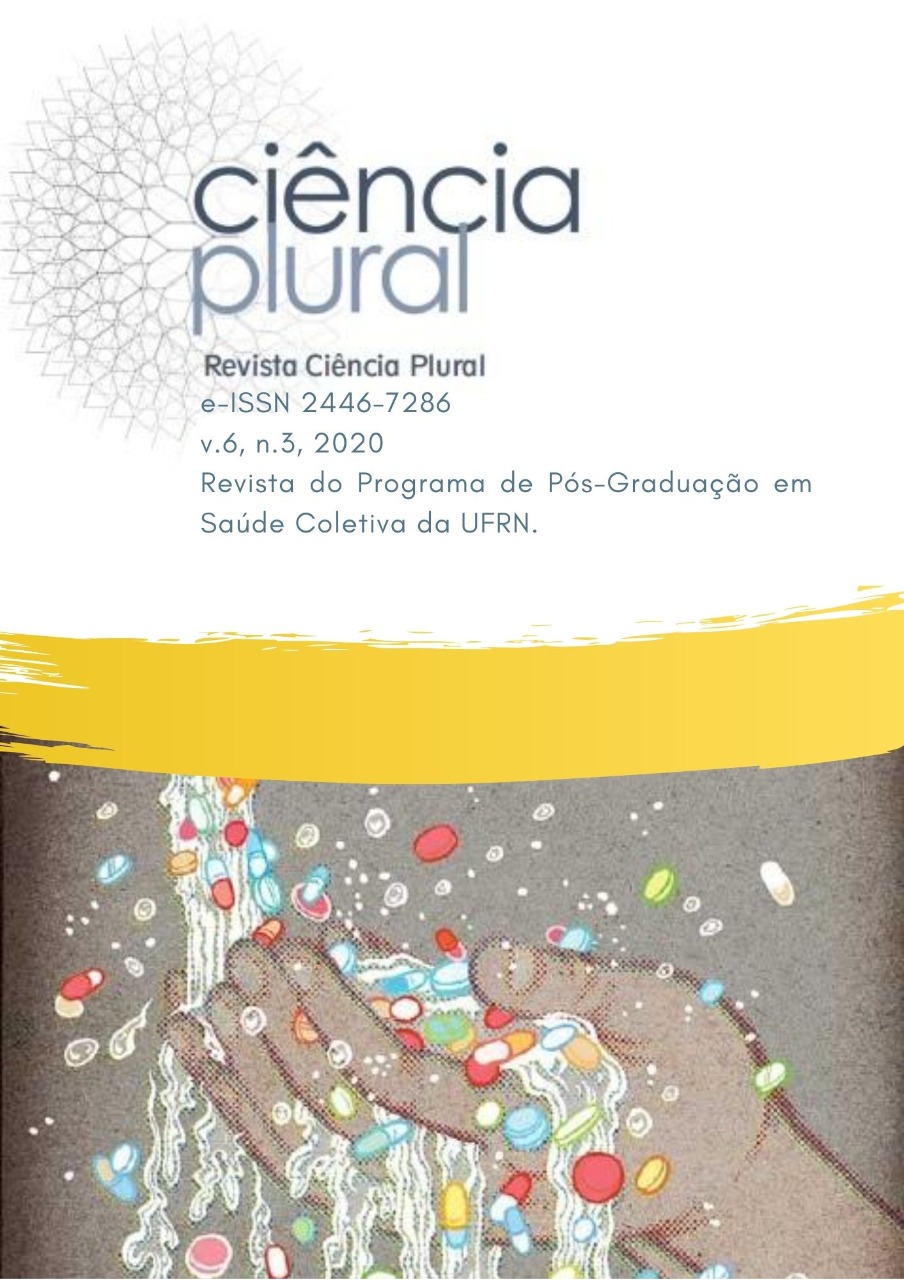HÁBITOS DE COMPRA E CONSUMO DE ALIMENTOS EM FAMÍLIAS COM MENORES DE CINCO ANOS EM UM MUNICÍPIO DO NORDESTE BRASILEIRO
DOI:
https://doi.org/10.21680/2446-7286.2020v6n3ID20335Resumen
Introdução: O ambiente alimentar pode influenciar nas decisões sobre os hábitos e modificar a aquisição e consumo de alimentos ao considerar que as escolhas alimentares são determinadas pelo acesso, disponibilidade, propaganda, conveniência e preço. Isso pode ocasionar consideráveis transformações no comportamento alimentar desde a infância. Objetivo: Avaliar os hábitos de compra e de consumo de alimentos em famílias com crianças menores de cinco anos em um município do Nordeste Brasileiro. Metodologia: Trata-se de uma pesquisa transversal, de abordagem quantitativa, realizada com 138 indivíduos nas seis unidades básicas de saúde urbanas do município. Foi realizada entrevista estruturada com aplicação de questionários sobre informações socioeconômicas, hábitos de compra e consumo de alimentos, segurança alimentar, peso e altura auto referidos. Os dados foram analisados no software Statistical Package for the Social Science Statistics (SPSS) versão 23.0. Foi realizado teste de associação entre os hábitos de compra e consumo de alimentos com dados socioeconômicos, estado nutricional antropométrico e segurança alimentar. Resultados: Dentre os hábitos de consumo avaliado, foi verificado que o consumo de salada crua (83,8%), frutas (95,9%) e suco de fruta ou de polpa (93,8%) em pelo menos um dia na semana, foram associados a uma maior escolaridade. Enquanto que a maior frequência de compra e consumo em restaurantes e lanchonetes foi associada a uma maior renda, possuir emprego e não participar de programas sociais. Conclusão: Hábitos de compra e de consumo de alimentos mais saudáveis foram associados com maior escolaridade e condições de trabalho e renda. Assim como acesso à restaurantes e lanchonetes em indivíduos com melhor poder aquisitivo.
Palavras-Chave: Consumo de alimentos; promoção da saúde; hábitos alimentares.
Descargas
Descargas
Publicado
Cómo citar
Número
Sección
Licencia
À Revista Ciência Plural ficam reservados os direitos autorais referente a todos os artigos publicados.

 Português (Brasil)
Português (Brasil) English
English Español (España)
Español (España)













